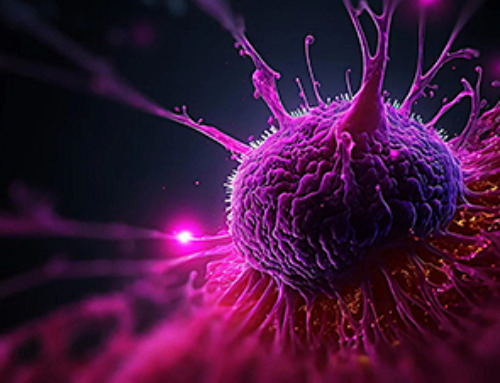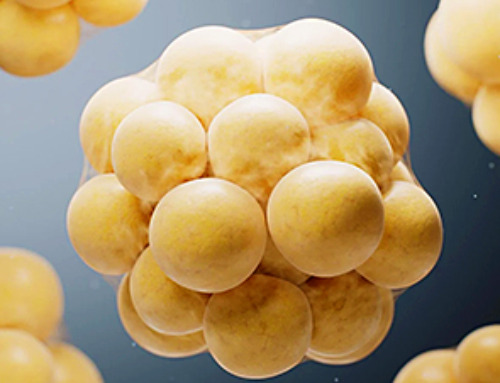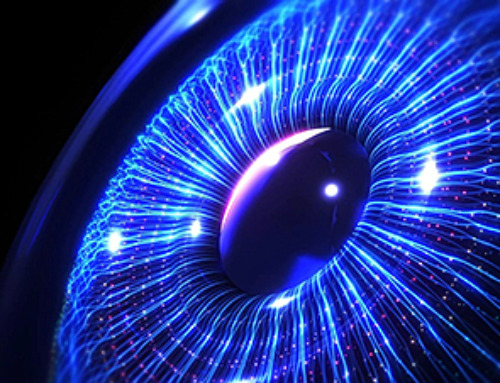What happens in the human brain when we learn from positive and negative experiences? To help answer that question and better understand decision-making and human behavior, scientists are studying dopamine.
Now, a new study from researchers at Wake Forest University School of Medicine published Dec. 1 in Science Advances shows that dopamine release in the human brain plays a crucial role in encoding both reward and punishment prediction errors. This means that dopamine is involved in the process of learning from both positive and negative experiences, allowing the brain to adjust and adapt its behavior based on the outcomes of these experiences.
“Previously, research has shown that dopamine plays an important role in how animals learn from ‘rewarding’ (and possibly ‘punishing’) experiences. But, little work has been done to directly assess what dopamine does on fast timescales in the human brain,” said Kenneth T. Kishida, Ph.D., associate professor of physiology and pharmacology and neurosurgery at Wake Forest University School of Medicine.
“This is the first study in humans to examine how dopamine encodes rewards and punishments and whether dopamine reflects an ‘optimal’ teaching signal that is used in today’s most advanced artificial intelligence research.”
For the study, researchers on Kishida’s team utilized fast-scan cyclic voltammetry, an electrochemical technique, paired with machine learning, to detect and measure dopamine levels in real-time (i.e., 10 measurements per second). However, this method is challenging and can only be performed during invasive procedures such as deep-brain stimulation (DBS) brain surgery. DBS is commonly employed to treat conditions such as Parkinson’s disease, essential tremor, obsessive-compulsive disorder and epilepsy.
Kishida’s team collaborated with Atrium Health Wake Forest Baptist neurosurgeons Stephen B. Tatter, M.D., and Adrian W. Laxton, M.D., who are also both faculty members in the Department of Neurosurgery at Wake Forest University School of Medicine, to insert a carbon fiber microelectrode deep into the brain of three participants at Atrium Health Wake Forest Baptist Medical Center who were scheduled to receive DBS to treat essential tremor.
While the participants were awake in the operating room, they played a simple computer game. As they played the game, dopamine measurements were taken in the striatum, a part of the brain that is important for cognition, decision-making, and coordinated movements.
During the game, participants’ choices were either rewarded or punished with real monetary gains or losses. The game was divided into three stages in which participants learned from positive or negative feedback to make choices that maximized rewards and minimized penalties. Dopamine levels were measured continuously, once every 100 milliseconds, throughout each of the three stages of the game.
“We found that dopamine not only plays a role in signaling both positive and negative experiences in the brain, but it seems to do so in a way that is optimal when trying to learn from those outcomes. What was also interesting, is that it seems like there may be independent pathways in the brain that separately engage the dopamine system for rewarding versus punishing experiences. Our results reveal a surprising result that these two pathways may encode rewarding and punishing experiences on slightly shifted timescales separated by only 200 to 400 milliseconds in time,” Kishida said.
Kishida believes that this level of understanding may lead to a better understanding of how the dopamine system is affected in humans with psychiatric and neurological disorders. Kishida said additional research is needed to understand how dopamine signaling is altered in psychiatric and neurological disorders.
“Traditionally, dopamine is often referred to as ‘the pleasure neurotransmitter,”‘ Kishida said. “However, our work provides evidence that this is not the way to think about dopamine. Instead, dopamine is a crucial part of a sophisticated system that teaches our brain and guides our behavior. That dopamine is also involved in teaching our brain about punishing experiences is an important discovery and may provide new directions in research to help us better understand the mechanisms underlying depression, addiction, and related psychiatric and neurological disorders.”
More information: Paul Sands et al, Sub-second fluctuations in extracellular dopamine encode reward and punishment prediction errors in humans, Science Advances (2023). DOI: 10.1126/sciadv.adi4927. www.science.org/doi/10.1126/sciadv.adi4927
News
Deadly Pancreatic Cancer Found To “Wire Itself” Into the Body’s Nerves
A newly discovered link between pancreatic cancer and neural signaling reveals a promising drug target that slows tumor growth by blocking glutamate uptake. Pancreatic cancer is among the most deadly cancers, and scientists are [...]
This Simple Brain Exercise May Protect Against Dementia for 20 Years
A long-running study following thousands of older adults suggests that a relatively brief period of targeted brain training may have effects that last decades. Starting in the late 1990s, close to 3,000 older adults [...]
Scientists Crack a 50-Year Tissue Mystery With Major Cancer Implications
Researchers have resolved a 50-year-old scientific mystery by identifying the molecular mechanism that allows tissues to regenerate after severe damage. The discovery could help guide future treatments aimed at reducing the risk of cancer [...]
This New Blood Test Can Detect Cancer Before Tumors Appear
A new CRISPR-powered light sensor can detect the faintest whispers of cancer in a single drop of blood. Scientists have created an advanced light-based sensor capable of identifying extremely small amounts of cancer biomarkers [...]
Blindness Breakthrough? This Snail Regrows Eyes in 30 Days
A snail that regrows its eyes may hold the genetic clues to restoring human sight. Human eyes are intricate organs that cannot regrow once damaged. Surprisingly, they share key structural features with the eyes [...]
This Is Why the Same Virus Hits People So Differently
Scientists have mapped how genetics and life experiences leave lasting epigenetic marks on immune cells. The discovery helps explain why people respond so differently to the same infections and could lead to more personalized [...]
Rejuvenating neurons restores learning and memory in mice
EPFL scientists report that briefly switching on three “reprogramming” genes in a small set of memory-trace neurons restored memory in aged mice and in mouse models of Alzheimer’s disease to level of healthy young [...]
New book from Nanoappsmedical Inc. – Global Health Care Equivalency
A new book by Frank Boehm, NanoappsMedical Inc. Founder. This groundbreaking volume explores the vision of a Global Health Care Equivalency (GHCE) system powered by artificial intelligence and quantum computing technologies, operating on secure [...]
New Molecule Blocks Deadliest Brain Cancer at Its Genetic Root
Researchers have identified a molecule that disrupts a critical gene in glioblastoma. Scientists at the UVA Comprehensive Cancer Center say they have found a small molecule that can shut down a gene tied to glioblastoma, a [...]
Scientists Finally Solve a 30-Year-Old Cancer Mystery Hidden in Rye Pollen
Nearly 30 years after rye pollen molecules were shown to slow tumor growth in animals, scientists have finally determined their exact three-dimensional structures. Nearly 30 years ago, researchers noticed something surprising in rye pollen: [...]
NanoMedical Brain/Cloud Interface – Explorations and Implications. A new book from Frank Boehm
New book from Frank Boehm, NanoappsMedical Inc Founder: This book explores the future hypothetical possibility that the cerebral cortex of the human brain might be seamlessly, safely, and securely connected with the Cloud via [...]
How lipid nanoparticles carrying vaccines release their cargo
A study from FAU has shown that lipid nanoparticles restructure their membrane significantly after being absorbed into a cell and ending up in an acidic environment. Vaccines and other medicines are often packed in [...]
New book from NanoappsMedical Inc – Molecular Manufacturing: The Future of Nanomedicine
This book explores the revolutionary potential of atomically precise manufacturing technologies to transform global healthcare, as well as practically every other sector across society. This forward-thinking volume examines how envisaged Factory@Home systems might enable the cost-effective [...]
A Virus Designed in the Lab Could Help Defeat Antibiotic Resistance
Scientists can now design bacteria-killing viruses from DNA, opening a faster path to fighting superbugs. Bacteriophages have been used as treatments for bacterial infections for more than a century. Interest in these viruses is rising [...]
Sleep Deprivation Triggers a Strange Brain Cleanup
When you don’t sleep enough, your brain may clean itself at the exact moment you need it to think. Most people recognize the sensation. After a night of inadequate sleep, staying focused becomes harder [...]
Lab-grown corticospinal neurons offer new models for ALS and spinal injuries
Researchers have developed a way to grow a highly specialized subset of brain nerve cells that are involved in motor neuron disease and damaged in spinal injuries. Their study, published today in eLife as the final [...]





















